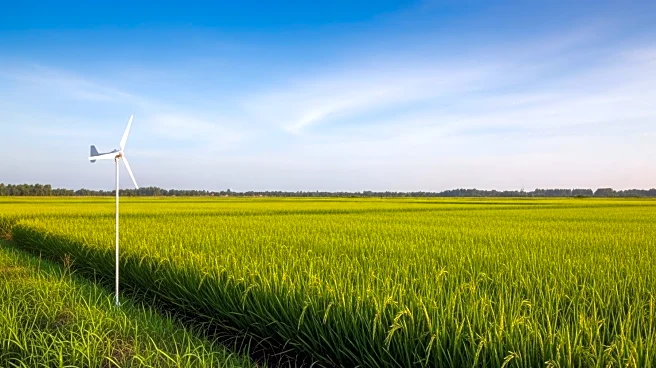What's Happening?
CleanTechnica reports on innovative methods to reduce methane emissions from rice farming, a significant contributor to climate change. Traditional wet farming practices are being challenged by techniques such as alternate wetting and drying, mid-season
drainage, and direct seeding into dry soil. These methods aim to decrease the flooding season and control water usage, thereby reducing methane emissions and arsenic uptake in rice plants. The article also suggests alternative grains like amaranth, millet, and quinoa as more sustainable options.
Why It's Important?
Rice farming is a major source of methane emissions, which are more potent than carbon dioxide in contributing to global warming. By adopting sustainable farming practices, the agricultural sector can significantly reduce its carbon footprint. This shift not only addresses environmental concerns but also promotes healthier food production by minimizing arsenic levels in rice. The exploration of alternative grains offers consumers more sustainable dietary choices, potentially influencing market demand and agricultural practices.















